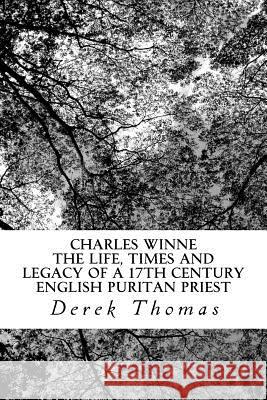Charles Winne: The life, times and legacy of a 17th century English puritan priest » książka
Charles Winne: The life, times and legacy of a 17th century English puritan priest
ISBN-13: 9781511673310 / Angielski / Miękka / 2015 / 154 str.
A 17th century puritan clergyman, Charles Winne, funded trusts for a school in Wolverhampton and for a school in the parish of Penn, Staffordshire. Born into a relatively poor Worcestershire family, Winne graduated from Emmanuel College, Cambridge, was ordained in Norwich Cathedral and ministered in Sudbury, Suffolk and Penn, Staffordshire. At Sudbury, his parishioners were taxed and levied to support the parliamentary forces in the Civil War; some were conscripted for military service; others had billeted troops forced upon them; and those considered to be ungodly had their property stolen. His parish church and churches in neighbouring parishes were despoiled by iconoclasts; and witch hunts brought terror to the area. During the following 23 years at Penn, an anointed king, Charles I, was brought to trial for breach of faith with his subjects, executed, and monarchy declared abolished. The Church of England was dissolved, its property seized, and religious toleration for all forms of Protestantism proclaimed. Ideas of liberty, equality and fraternity were proclaimed and were to live on and to revive again in other societies and other ages. After this revolution, monarchy, lords and the Anglican Church were restored. What manner of man was Winne? How did he survive as a puritan priest during this tumultuous time in English history? Why did he fund trusts in his will? How did he gain wealth to make provision for trusts? These are the questions addressed in this study of a seventeenth century puritan cleric.
Zawartość książki może nie spełniać oczekiwań – reklamacje nie obejmują treści, która mogła nie być redakcyjnie ani merytorycznie opracowana.











